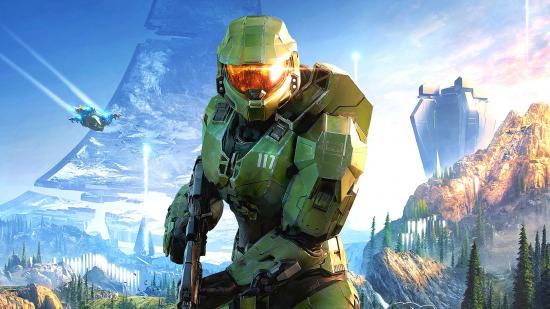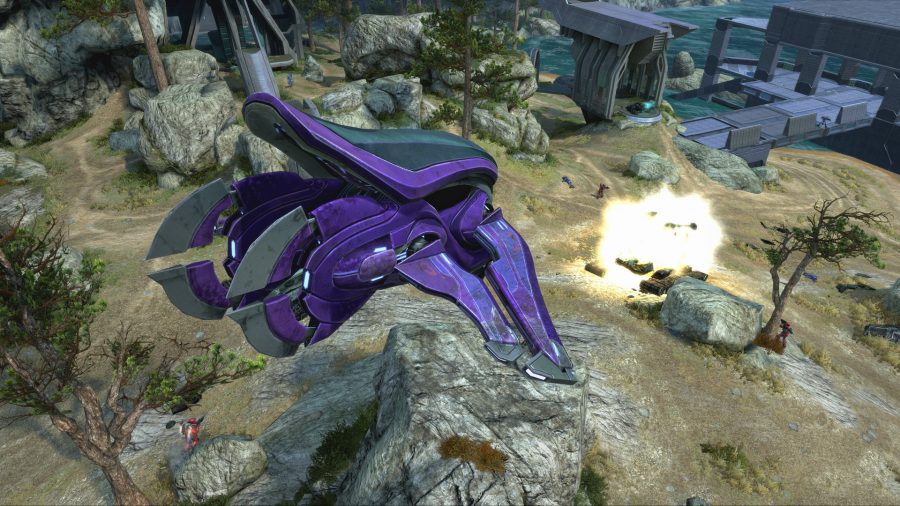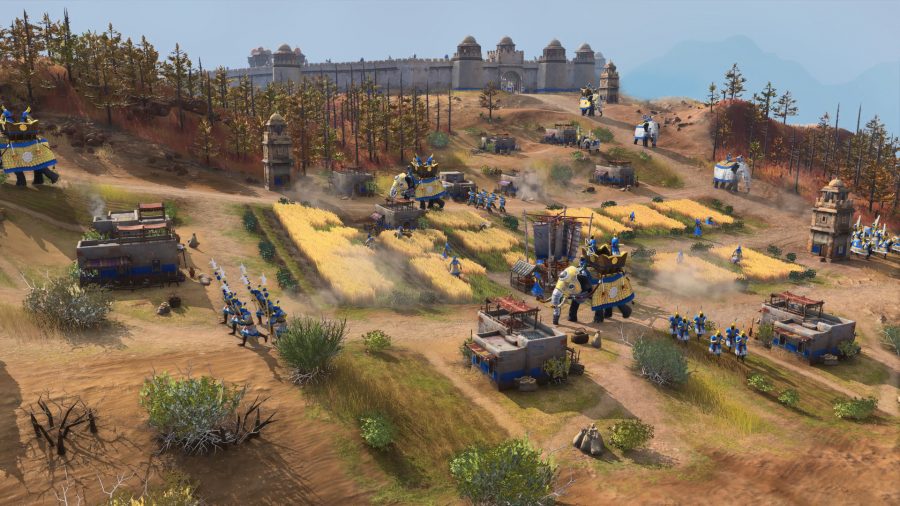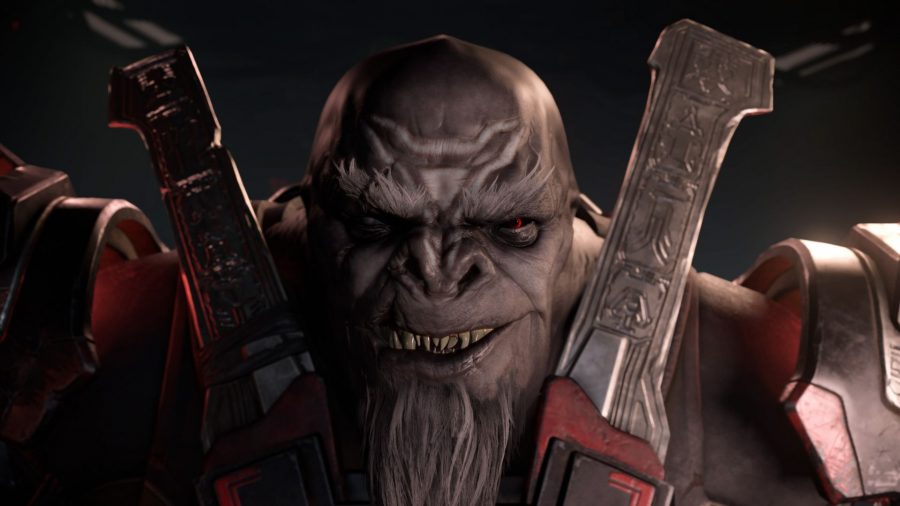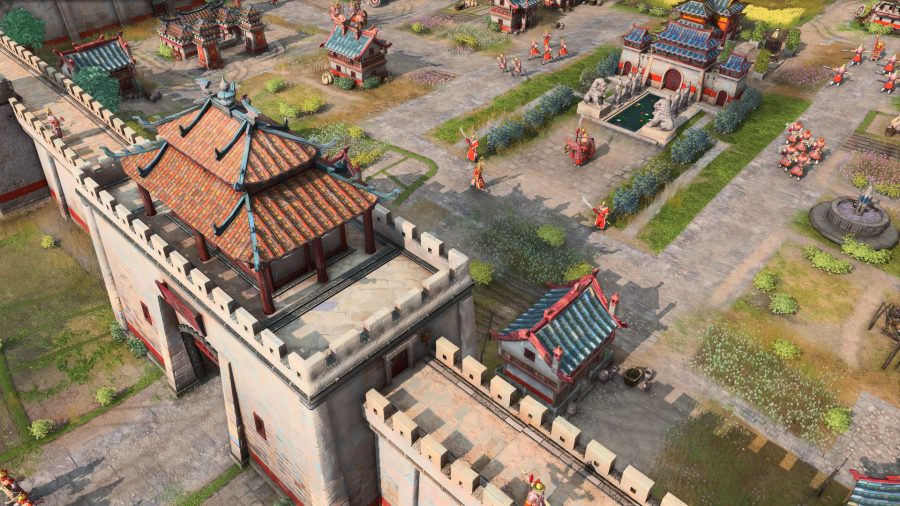Five years ago, at E3 2016, we spoke to Phil Spencer about the future of PC gaming. Arguably the most memorable thing about Microsoft's conference that year is how often the words “Windows 10 and Xbox One exclusive” flashed up on the stream. PC was clearly a huge focus for Microsoft at the time, so how's that commitment holding up five years later?
Xbox Game Pass for PC, Halo: The Master Chief Collection, new releases like Microsoft Flight Simulator, and upcoming titles such as Halo Infinite and Age of Empire IV – ignoring the ongoing graphics card shortage, now is an especially good time to be a PC gamer. And it's clearly paying dividends, as Microsoft has just revealed that Halo MCC has seen more than ten million players on PC in just over a year, many of whom are new to the series.
We speak to partner director, Jason Beaumont, and studio head of World’s Edge, Shannon Loftis, about ecosystems, Game Pass library curation, and how Microsoft hopes to reach three billion people.
PCGamesN: The launch of Game Pass for PC and improvements to the Windows Store show clear investment in Microsoft’s gaming ecosystem. Yet recent Steam releases of Microsoft games also show the company opening up. How do those philosophies align?
Jason Beaumont: This gets at the heart of Microsoft’s unique position in not just the PC gaming ecosystem, but the computing ecosystem. Microsoft builds Windows – those folks are in the building down the street from the rest of us at Xbox. That stewardship means that you need a commitment to cultivating a platform. People need to be able to build on top of it.
Now, we also build games on top of that platform, as well as things like Game Pass and the store. Microsoft is in a unique position where we own and build a platform for others to achieve success on, but we also build some of our own stuff.
I think that sometimes it’s tempting to look at the industry and be like, ‘what are the industry players doing? What chess moves are they making?’ And one of the things I’ve appreciated since I came to Xbox is that everything starts with the gamer. When we’re having conversations in meetings and deciding what we’re going to do, it pretty much always starts with ‘Ok, well we’re seeing gamers do this’.
Gamers are playing across all sorts of different devices. Growing up I always identified as a PC gamer. If you asked me where I played games, I would say PC. Now I kind of play everywhere, and I don’t really think of myself as a PC gamer, or a console gamer, or a mobile gamer. I play across all of them. So we make a lot of investments that start from, ‘Ok, knowing that our gamers play across all platforms, what are the right things that we could be building for them?’
Shannon Loftis: Echoing Jason’s comments, all of the major first party IP releases launch on Game Pass, the Windows Store, and now also on Steam. It’s not so much about whose yard people are playing in, it’s about finding out where people want to play. What’s the choice that gamers want to make? Where’s the community the strongest? And how can we expand that community?
The Master Chief Collection has hit ten million players on PC, and most of those people are new to the series. We discovered a whole new cache of Halo fans that we wouldn’t otherwise have gotten to reach if we hadn’t released on Steam, the Windows Store, and Game Pass.
So is ‘ecosystem’ a defunct word these days?
JB: The ecosystem term I’ve been using internally is coral reef. I know we have a lot of problems with coral reefs these days, but [ideally] a coral reef is a thing that lots of other things grow on top of, and they support a wide variety of life.
When I think about gaming, everything from a microtransaction model in a free-to-play game, to a service model, to a single-player model… all of those things are about choices for both the creators and the players. Gamers have a wide variety of things that they like. I flit between all of those different models in the games that I play, and you see publishers and developers exploring different ones as well.
For us at Xbox and Microsoft, our responsibility is making sure that we build the tools that allow developers and publishers to express themselves, and allow gamers to play the way that they want to. Our place as a platform holder is helping discoveries happen between creators and players.
SL: From a game development standpoint, it’s about connecting with gamers every way that you can. One of the happy trends of the last five years is that gamers are actually part of the game development process. Innovating ways that you can introduce gamer voices into game development is really important – it’s really about flexible innovation.
So can we expect to see Microsoft’s game studios working more closely with fans in the near future?
SL: I’ll speak for Age of Empires. We have been quite active with our community from day one. We created an Age community council based on one of our partners, Forgotten Empires. These guys were fans of the franchise who made mods, and they were such good mods that they were able to make money and create a company. So fans have always been right at the heart of Age of Empires’ development.
It’s also true for Microsoft Flight Simulator, which is one of my favourite stories of the last year. There was a quiet, but passionate flight sim community, and when we decided we wanted to reboot the franchise we consulted with pilots and people who had been playing flight sim for years. We have a long pedigree in PC gaming, but in some ways we’ve had to catch up with what our community has done.
Game Pass stands out from a lot of subscription-based models as it’s clearly a very curated library of games. How important is curation to Game Pass, and is that a key part of the platform you’re building?
JB: The curation itself is really important. If lots of other platforms have thousands upon thousands of titles, there’s something unique about being able to look at a couple hundred curated games. It’s kind of like the difference between a buffet and an omakase.
As for the curation activity itself, we’ve got lots of folks that take a look at games across a spectrum of genres. One of the things that I was really impressed by when I came to Xbox about three or four years ago, is the diversity of voices inside the team that are all contributing to the conversations, saying ‘Hey, this thing is great, check this game out’. So we have a lot of folks who are highlighting game previews on websites, or meeting with developers with unique ideas. Having those voices on the team has allowed us to discover some great titles and bring them to our customers.
In the last couple of weeks I’ve been in love with Genesis Noir, and I feel like I may have lost that game without Game Pass. It’s such a unique game that I’m really glad to have discovered because of the service.
Do you think that expanding the library too much will have an adverse effect on the quality of games on Game Pass and their discoverability?
JB: The number one thing is listening to our customers and getting feedback from them about what they’re liking and what they’re not liking. Are they able to discover things? We’re also investing more in discovery tools.
We’ve been looking into how we can surface some of the qualities of a game to customers in order to help them find what’s unique about it and discover if it’s right for them or not. I’ll continue to use Genesis Noir as an example – it’s this existential detective game with hints of WarioWare and free jazz. Helping a customer understand what a game like that is about is one of the things that we’re hoping to build into the platform.
Why is the Game Pass for PC library different from the console one?
JB: A lot of that comes down to developer and publisher choice. So we offer a platform and a way to connect with players on PC, console, and via the cloud. That mechanism is there to connect creators and players. There are different reasons for every single game, and for every single publisher, but sometimes those decisions are the same across different devices, and sometimes they’re not.
I think as the industry evolves you’ll see more similarities across devices. Even now, some games have the same name on console and on PC, but they have different mechanics and inputs. So developers and publishers don’t always make the same choices depending on their end goals and the players they want to reach.
SL: Linking back to Ben’s ambitious prediction, Game Pass is one of the most inclusive ways to access content. Speaking as a developer, no part of the conversation about Game Pass or ecosystems has been about anything other than giving people great access to high quality content.
We saw a recent Eurogamer piece in which they quoted Ben Decker as saying your ultimate target figure for Xbox is three billion gamers worldwide. How did you arrive at that figure?
JB: It’s all about the definition of who plays games, and what we mean by games. I think if you take a look at folks who play games, many of them would say ‘I’m not a gamer’, but they’re playing a lot of games.
I’ll use my brother as an example, he plays Words with Friends, so he may not call himself a gamer, but he’s spending a lot of time playing a multiplayer videogame. So when we think about what it means to reach gamers all over the world, games mean different things to different folks, even if they don’t self-identify as gamers.
SL: I’ve been making games now for almost 30 years and one of the things that I love about gaming is that it’s universal. And I do think that it’s a fundamental part of our lives – I’m going to go into my evangelist spiel now – because they help us produce that dopamine and serotonin that we all need to function. Videogames are an incredible way to just live in another world for a little while.
One of the things that we have the freedom to do now is explore all kinds of different ways to make those games. We can release a game as intense as Halo: The Master Chief Collection, but then on the flip side you have the beauty and serenity of cruising above Jordan in your Cessna 172 in Microsoft Flight Simulator. Both of those are equally important in the ecosystem. As we’ve added studios and broadened the focus of Xbox, game developers pretty much have licence to build anywhere.
What do you see as your biggest challenges when it comes to reaching that many people, whether on Game Pass or through other means?
JB: Our job as a platform holder is to solve complexity for our customers and for the publishers. Right now there’s a complex interplay between what kind of game is made and how a customer can discover that game. There are a lot of games out there that folks aren’t discovering, and I think there’s also a lot of unmet need that game makers could be addressing.
So when I think about the broader ambition of getting three billion people playing games, you need great games that can talk to a wide and diverse set of audiences, and you need ways for customers to discover those games. Those are the big challenges in my mind.
SL: If you’re a game developer who’s looking at Game Pass and you want to be part of it, you need to evolve your thinking. The games you’re making are now not for an audience that is concentrated mainly in North America and Europe – instead it’s truly global. Making games with a global focus involves understanding the political impact of the content you’re creating. Frequently, you’re going to be representing cultures that aren’t necessarily represented on your team. So how do you do that in an authentic and respectful way?
For Age of Empires we actually invested quite a bit in engaging with historians in Mongolia and people of Mongolian descent to make sure we’re representing that civilisation authentically. We do actually happen to have a person from Mongolia on our team and they’ve helped us connect with more experts. It’s not just about doing the right thing, which is important, but it’s our core belief that it’s a better experience for gamers if you’re authentic.
So you see lots of blue oceans out there, rather than having to compete with everyone else for the same core audiences?
SL: Absolutely, no question about it. Age of Empires is such a fun game to work on because it literally has fans all over the world. Having the opportunity to meet Vietnamese Age of Empires pros like Chim Se Di Nang… everything changes when you meet and connect with people globally.
